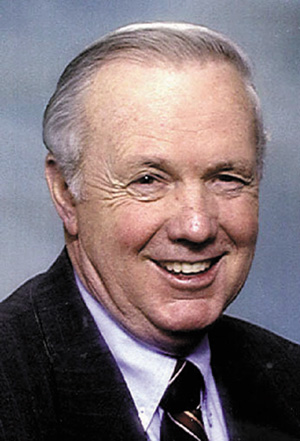No. 52 - CHILDREN AND FINANCIAL DISCIPLINE
No. 52
The next password is caleb
Jim Davidson...NEWSPAPER COLUMN
MAKING WISE DECISIONS
It has been said that a decision is what a person makes when he or she can't find anybody to serve on a committee. This is certainly true in an organizational sense, but as it relates to each individual person, you will find the most successful people are the ones who have the knack of making right and timely decisions most of the time. Now I said "most" of the time because if we do anything at all, we are bound to make some misteaks. In fact, the only people who don't make them are dead.
If you will also think about your life, I believe you will agree that we are where we are, right, wrong, good, bad or indifferent, because of our ability or inability to make wise decisions. One of the primary reasons decision making is so difficult for many people is because these skills have not traditionally been taught in our nation's schools. Most of us have never had a course titled How To Make Decisions. Although I've been out of school for some time I can't remember ever hearing it discussed. Rather, in most cases we make our decisions based on emotion, habit or spur of the moment, erroneous information and trial and error.
In the case of trial and error, if we make a mistake and the consequences are too severe, as a rational thinking person, we try not to make that same mistake again. It's just common sense to realize that making the wrong decision at a critical time in our life can lead to some very serious problems. This is an excellent reason why a "made-up" mind is so important when it comes to making moral and ethical choices. In other words, the decision to do or not to do certain things has already been made.
There are a great number of factors involved in making right and timely decisions, however it is not an exact science, but there is a decision making concept based on logic and a step-by-step sequence that will definitely improve our odds. Before I share it with you, let me warn you that the number one problem in making decisions is something we call procrastination. This means to put off making the decision based on the notion that the problem will somehow go away or solve itself.
Following is a decision making concept: first, state the problem very clearly and write it down on paper where you can see it. There is a lot of truth in the saying, "A problem well stated is a problem half solved." Next, answer these simple questions in relation to your problem: 1) What will happen if I don't make this decision? 2) What will happen if I do?
3) Who are the people this decision will affect? 4) What are the different ways it will affect them? 5) What will it cost in human terms and also in money, if I make this decision?
6) What will it cost in these two vital areas if I don't? 7) Based on my best judgment, when is the best possible time to make this decision?
You have probably heard the saying, "There is never enough time to do it right, but there is always enough time to do it over." This is true when it comes to taking time to prepare for good decision making just like it takes time to prepare for a successful life. There are times when a "snap" decision or judgment must be made right on the spot, but even then this advance mental preparation will help you make wise and timely decisions a higher percentage of the time. Until our next visit, I want to acknowledge that “making wise decisions” is not an exciting topic. Really, it’s kinda boring. However, if you get this one right, there will be many more exciting things in your future. (EDITOR'S NOTE: Jim Davidson is a motivational speaker and syndicated columnist. You may contact him at 2 Bentley Drive, Conway, AR 72034.)
The next password is caleb
